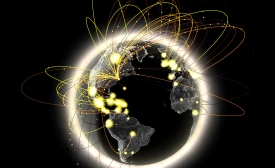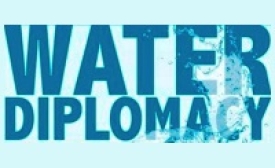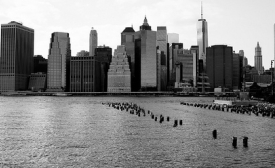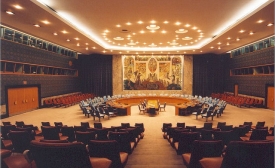Related CPD Research Projects

With over half of humanity living in urban settlements, the role of cities in defining the parameters of everyday life is an undeniable influence. This project was designed to illustrate how global cities interact with global governance, particularly in the Climate Leadership Group or ‘C40.’

The goal of this project was to stimulate greater awareness and knowledge of how culture influences public diplomacy and help generate multicultural perspectives of public diplomacy. Although cultural diplomacy may benefit from culture as a highly visible tool for promoting mutual understanding, public diplomacy is vulnerable to the hidden aspects of culture that can generate mutual misunderstanding.

Though essential to human existence, water has become increasingly unavailable due to pollution, failure to develop conservation programs, and the mismanagement of water resources. During the near future, water shortages could lead to conflict in many parts of the world. CPD looked at how water diplomacy can help address this critical topic.

This project drew on the ‘cosmopolitan turn’ in social thought to reconsider city diplomacy in spatial terms, including urban planning, architecture and network theory.

Mixing religion and public diplomacy can produce volatile results, but in a world in which the dissemination and influence of religious beliefs are enhanced by new communications technologies, religion is a factor in most foreign policy issues and must be addressed. This initiative seeks to address key issues of faith in an increasingly connected religious world and to provide a better understanding of the role that religion plays in foreign policy.
While significant attention has been given to how political groups in the Arab world use the media to intimidate enemies and instill fear in times of conflict, the use of public diplomacy by local and regional actors in the region remains understudied. This project examined the use of public diplomacy by non-state actors in the Arab world, including Islamist groups.

This project examines why and how sovereign states use public diplomacy in the pursuit of a non-permanent seat on the United Nations Security Council (UNSC). The research for this project draws upon the experience of middle power Australia, a founding member and longstanding supporter of the UN, with aspirations to sit at the UNSC table.

How are mobile phones- the most ubiquitous communications device in human history- being utilized to enhance engagement in international communication and dialogue? This research project seeks to overview the landscape, or “The State Of,” mobiles and social media in public diplomacy, through an examination of initiatives conducted by a) Governments, b) International Organizations, and c) Non-State Actors.







